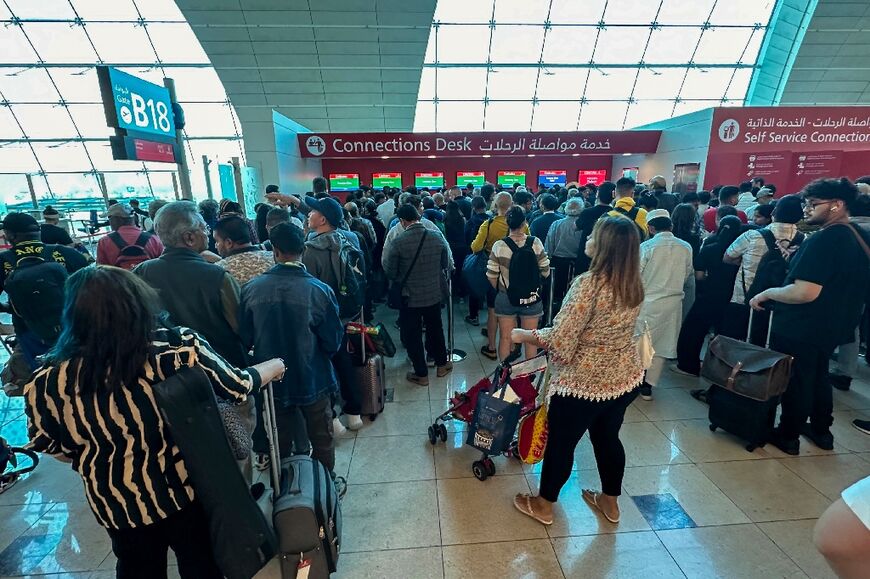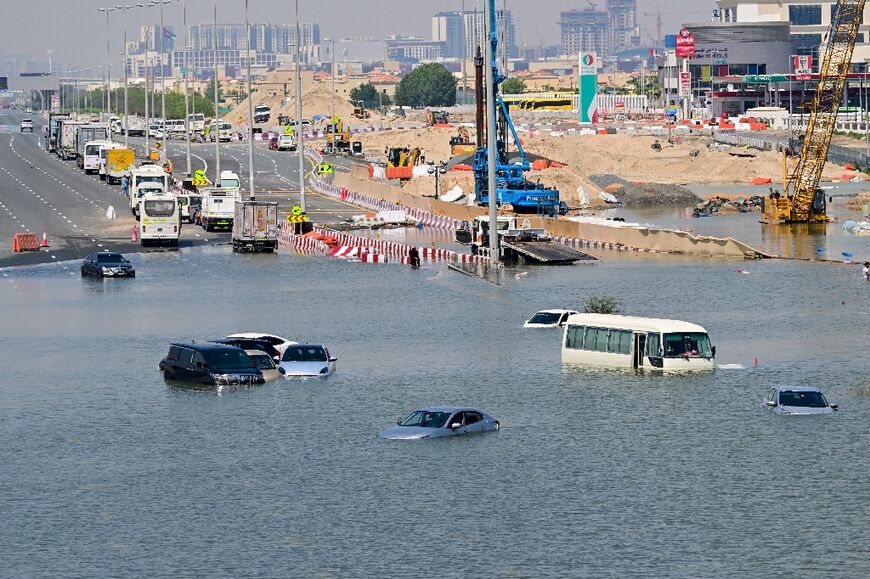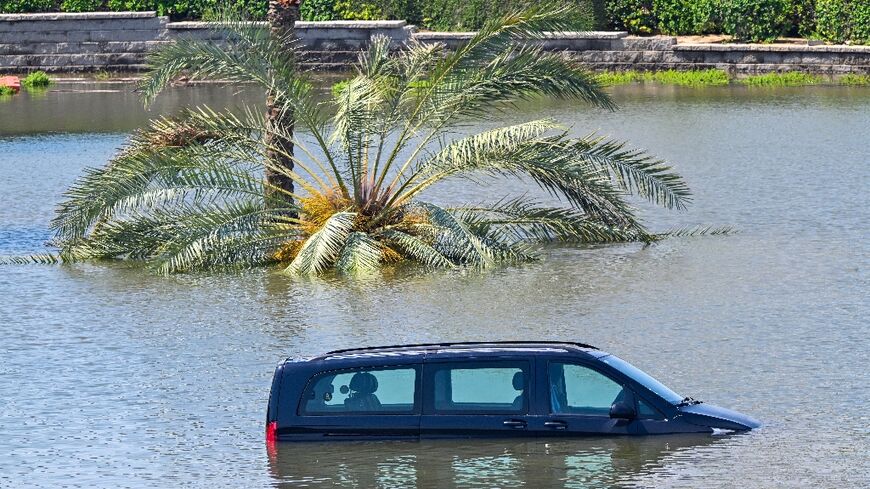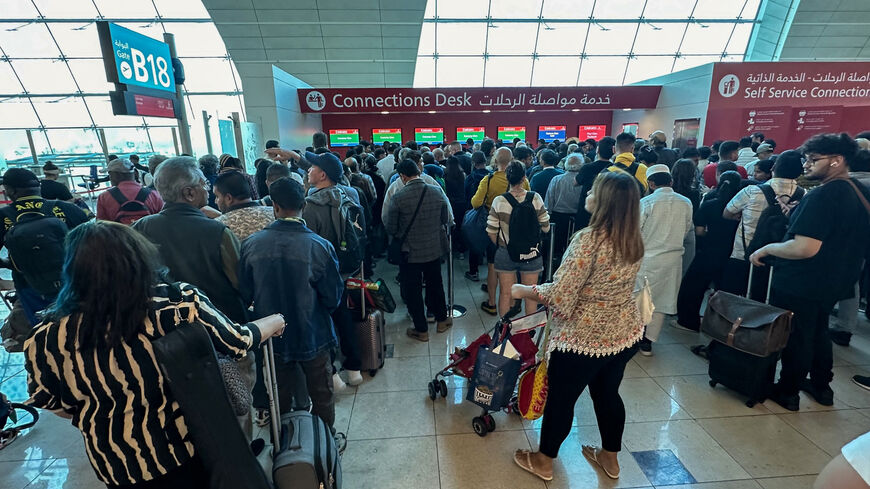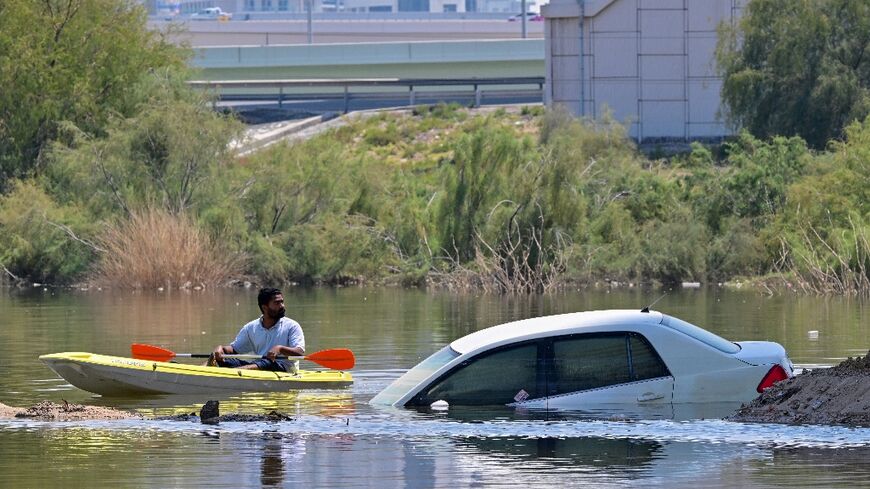Slow recovery as Dubai airport, roads still deluged

Dubai airport, one of the world's busiest, witnessed major disruption for a third straight day Thursday after the heaviest rains on record drenched the desert United Arab Emirates.
Emirates, Dubai's state-owned flagship airline, and sister carrier flydubai resumed check-ins after telling passengers to stay away on Wednesday, when thousands of delayed passengers clogged the airport.
The airport, which handles more international passengers than any other, hopes to resume "something approaching normality" within 24 hours, Dubai Airports CEO Paul Griffiths told AFP.
Some 1,244 flights were cancelled and 41 diverted on Tuesday and Wednesday, after torrential rains flooded the Middle East financial centre including its homes, malls and offices, and highways.
Traffic congestion remained severe on Thursday, two days after the storms, with at least one major road completely blocked by water and multiple junctions cut off by flooding.
Climate experts say the rains, the UAE's heaviest since records began 75 years ago, are consistent with changes caused by global warming.
"There's no news here," Karim Elgendy, associate Director at the Buro Happold engineering consultancy and associate fellow at Britain's Chatham House think tank, told AFP.
"We are expecting an increase in variability of rainfall, which means more extreme events, more drought and an increase in intensity of rainfall when it does rain."
- 'Deeply distressed' -
Dubai airport has witnessed chaotic scenes with crowds of marooned travellers clamouring for information about their flights.
Even as Emirates and flydubai resumed check-ins, more than 200 departures were listed as delayed or cancelled on the airport's website.
Griffiths said it was "challenging" to get the airport fully functional, with supplies and staff also held up on flooded roads.
"Getting supplies through, people and all of the necessary things to the airport to help the schedule recover, was a massive challenge because all of the roads were blocked," he said in an interview.
"We just hope that the level of customer care that we've been able to provide will go some way to mitigate the impacts that we had to customers. But obviously we're deeply distressed by all of the disruption and concern that we've created," he added.
One elderly couple's 14-hour flight from Brisbane took 24 hours on Tuesday after it was diverted, and they were then unable to reach their hotel because of the flooding.
"It's just the start of our holiday and I feel like going home -- and I don't know how to do that either," Julie, 72, told AFP through tears.
"When they landed the plane on this airfield that was deserted, there was no terminal, there were no other planes and I thought we had been hijacked by terrorists," she added, without giving her surname.
- Makeshift ferry -
Although schools and public sector offices have been closed until next week, traffic returned to the roads with some motorists, finding their route blocked, driving the wrong way down highways.
Supermarkets had empty shelves as deliveries failed to arrive, and retail staff reported having to stay overnight or sleep at hotels because they could not get home.
"We're working but the problem is we're not receiving chicken," said one employee at a chicken restaurant that had no chicken or fries on display.
"The delivery cannot come here because of the flood."
In the Arjan district, a man used a canoe to paddle passengers across a flooded street.
With taxis hard to book and hail, private motorists were stopping at queues of people and offering rides for high prices.
British visitor Chris Moss, 30, was one of those looking for a cab as he tried to reach the airport and locate his lost luggage.
"When we arrived the baggage area was full of bags but my luggage was nowhere to be seen," said Moss, whose plane, hastily booked after his original flight was cancelled, arrived five hours late.
"It was still on the plane because the baggage area was flooded and they couldn't get the bags off."


